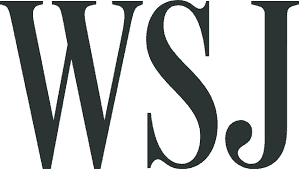The ‘Tell’ in Zuckerberg’s Letter to Congress
Mark Zuckerberg sent a mea culpa letter Monday to House Judiciary Chairman Jim Jordan, admitting that Meta, which owns Facebook, erred in acquiescing to government pressure for censorship. But it’s important to look closely at what the letter says and what it doesn’t.
On the one hand, Mr. Zuckerberg concedes what by now is obvious—that there was much government pressure for censorship: “Senior officials from the Biden Administration, including the White House, repeatedly pressured our teams for months to censor certain COVID-19 content, including humor and satire, and expressed a lot of frustration with our teams when we didn’t agree.”
On the other hand, he distances Meta’s censorship decisions from the government pressure: “Ultimately, it was our decision whether or not to take content down, and we own our decisions.” Mr. Zuckerberg (and surely his lawyers) thus admits both the pressure and the social-media censorship but carefully keeps the two apart. The aim, presumably, is to avoid having Meta treated as a state actor for purposes of the First Amendment and then being held liable for damages.
Mr. Zuckerberg isn’t denying that the government caused some of Meta’s censorship decisions. The letter is too carefully drafted to say something so obviously untrue. So in saying that it was “our decision” whether to take down content, Mr. Zuckerberg doesn’t claim that such decisions were unaffected by the government pressure—that was the whole point of the pressure.
In fact, Meta’s decisions often were driven by government pressure, as evident from the extensive record in Murthy v. Missouri. Mr. Zuckerberg’s phrasing about “our decisions,” however, sidesteps the causation question. It avoids any overt concession that the efforts to influence the company actually caused Meta to suppress speech.
The closest the letter comes to admitting causation is Mr. Zuckerberg’s assertion that he told his teams at the time that “we should not compromise our content standards due to pressure from any Administration in either direction—and we’re ready to push back if something like this happens again.” This sounds like bold defiance. But “if something like that happens again” suggests that Meta didn’t push back when it happened before—a backhanded admission that government pressure caused Meta to “compromise.” Mr. Zuckerberg never says, and couldn’t say, that Meta would have made the same censorship decisions in the absence of government pressure.
Mr. Zuckerberg’s letter is unintentionally revealing. Although it belatedly acknowledges the repeated government pressure, it’s much too cagey, nearly silent, about the effect of that pressure in securing social-media censorship. Mr. Zuckerberg’s caution about causation speaks volumes about his fears (or those of his lawyers) that, if the truth were out, Meta would be legally vulnerable.
August 27, 2024

Originally Published in The Wall Street Journal
